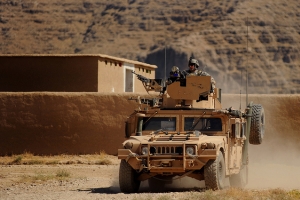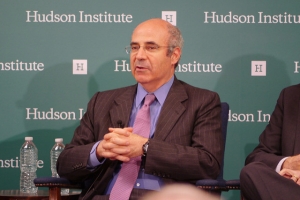Support migrant centric journalism today and donate

Uncertainty surrounding the special immigrant visa (SIV) programme for Afghans will continue despite the Donald Trump’s Presidency. Following a fiercely contested battle in the Senate, Congress guaranteed that the scheme would remain in place throughout the coming presidential term.
The Afghan immigration visa programme enables Afghanis - who have aided US-led coalition forces in the fight against the Taliban as construction workers, firefighters and interpreters - to resettle in the US due to the risk of being tortured or killed by the terrorist group if they returned home.
Back in June 2016, Workpermit.com reported that top US Army General, John Nicholson, urged US lawmakers to retain the programme. Meanwhile, avid supporter of the programme Senator and Republican chairman of the Senate Armed Services Committee John McCain, said: ‘How in good conscience could we refuse entry to Afghans who are deemed traitors by insurgent groups for siding with the Coalition?’
US Visa Categories that Trump has attacked include the L-1 intra-company transfer visa and H-1B specialty work visa categories. Fortunately it seems that the E-2 Treaty investor visa category and E-1 Treaty Trader visa category have not come under attack. In practice because of the lack of available visas and perhaps other reasons it is not currently possible for Afghans to apply for the Afghan Special Immigrant US visa (SIV) scheme.
$446 million bill to extend the Afghan US Visa program
Since 2014, the SIV scheme has been reauthorized on a yearly basis. In 2016, contained deep within the 700+ page National Defense Authorization Act (NDAA) for 2017 that was signed by outgoing president Barack Obama, there was a provision to extend the programme for a further four years.
Despite the provision being seemingly unobjectionable, an extension to the scheme has had to overcome some severe resistance prior to narrowly making it into the final version of the NDAA signed by Obama.
Among the critics of the scheme were US government officials who baulked at the $446 million cost of adding more visas to the programme. In particular, Senator Jeff Sessions was extremely opposed to increasing the number of visas for the programme. Sessions warned that the scheme could result in a potential ‘brain-drain’ in Afghanistan.
According to Senator Jeanne Shaheen any effort to extend the SIV programme in the past has always been contested. However, during an interview with Yahoo News, Shaheen said that extending the programme for 2017 had been ‘much harder than in previous years.’
Shaheen attributes this to the anti-immigrant sentiment stirred up by incoming president, Donald Trump during his presidential campaign. The version of the extension that was passed slashed the 4,000 visas that Shaheen had initially sought, down to just 1,500 for 2017.
13,000 Afghans await US Visa application approval
Since its inception in 2009, the SIV scheme set a target of providing 7,500 visas over five years. In 2014 and 2015, Congress voted to extend the programme for an additional 12 months, allocating a total of 7,000 additional visas. Despite this, the visa supply has failed to meet demand.
According to the US State Department, an estimated 13,000 applications made by Afghans are yet to be approved. However, as of October 2016, only 1,632 visas were available for allocation.
Shaheen said: “It’s obvious that the anti-immigration rhetoric of recent months has had a detrimental effect on our ability to secure what we needed from the SIV scheme. There were a few people, prominent people, in the Senate who did not want to see any additional visas granted.”
It’s understood that Shaheen was referring to those who fiercely opposed another extension to the scheme, including Senate Judiciary Chairman and Republican representative for Iowa, Chuck Grassley, and Republican representative for Alabama, Jeff Sessions, who also happens to be head of the judiciary subcommittee on immigration, as well as Trump’s US attorney general.
However, Shaheen was full of praise for John McCain who spearheaded a bipartisan coalition to get the provision passed.
Meanwhile, Betsy Fisher, policy director at the International Refugee Assistance Project (IRAP) - which provides legal aid and policy advocacy for refugees around the world – admitted that she was ‘pleasantly surprised to learn that the scheme had been extended up until 2020.’
However, she did express her concern that only 1,500 visas would be supplied. Speaking to Yahoo News, Fisher said: “It’s good to have some reassurance that Congress intends to keep this program running for the next four years. But without visas to help the people who are submitting applications, that extension won’t result in a path to safety for any more people.”
One Afghan killed every 36 hours because of association with US
According to IRAP, one Afghan is killed every 36 hours because of an association with the US. Fisher said: “Ensuring that there are enough visas to accommodate those who desperately need them is crucial. It’s not just the right thing to do, but it sends a message to our friends and our enemies that we take care of the people who work alongside our soldiers and our diplomats.”
Shaheen said: “Obviously we were hoping to get more visas, but when the defense authorization bill [initially] left the Senate, it didn’t have any SIV visas in it and it didn’t extend the program. Now that the program is guaranteed to exist through 2020, we can work on a yearly basis to get additional visas.”





















